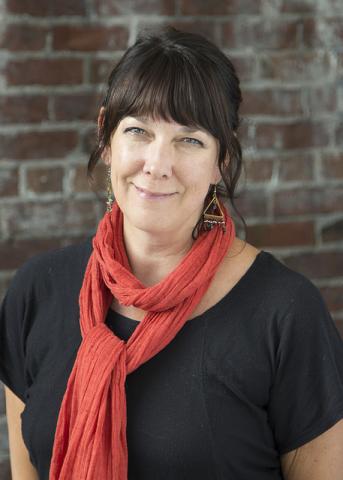Jennifer Myers, Ph.D.

About
Degrees
Introduction
My primary research interests on the intersection of Film Studies, Popular Culture, and Genre Studies reflect my research while working on my PhD. My dissertation, "Everybody's Woman: Gender, Genre, and Transnational Intermediality in Inter-war Italy," is based upon archival materials that I amassed at the National Library of Italy in Florence, the archives at Cinecitta in Rome and private collections of historical trade and fan journals. This study explores the connections between "women's films," romance novels, glossy fashion magazines and advertisements intended for the Italian female consumer in the period loosely dating between the early 1930s and the mid-1950s. By reassessing what counts as film history and culture in these years, this study complicates canonical accounts of post war Italian cinema that trumpet the moral and visual "ambiguity" intrinsic to neo-realism; it foregrounds popular genres and an international circuit of exchange through which ambiguous, or what I call "hybrid," female typologies attain governing status. Representing an indeterminate state, the women in the texts I scrutinize are neither foreign nor Italian, domestic nor extra-domestic, traditional nor modern.
The methodology employed in my dissertation continues to inform my new research interests and my film studies courses. In both, I focus on detailed analysis of form and narrative structure in order to enable visual literacy, thinking and creativity.
While grappling with narrative structures of various genres (the Western, Melodrama, Courtroom Dramas, Gangster, Film Noir) that toy with gender differences, sexuality, national identity, class, race and disability, I implement close-reading exercises of film stills and short film clips. By introducing the basic concepts of film form, genre, style and techniques, I thus provide the necessary critical tools for visual analysis. These skills then form the basis for engaging broader theoretical, philosophical, cultural and historical concepts. Additionally, I integrate exercises in compassion and empathy into my lessons when I encourage students to reflect on their own conflicted perspectives and identities in classroom debates and through an on-line discussion board.
Outside of IAS, I have been working periodically as a production assistant for the documentary, "Hidden in Plain Sight: Cold War Oregon." In this role, I have been scouting and preparing on-location shoots at various Northwest Cold War Infrastructure sites in conjunction with filmmaker, Ned Howard, my ability to critically assess landscape, camera positions and depth cues plays an important role in our ability to work with focus and alacrity. The critical and creative energy generated by this process has inspired me to envision additional projects for the future, particularly for pedagogical purposes. I would be especially interested to develop courses on the history of documentary films, self-reflexive fiction films and crime dramas that raise questions about the nature of "truth," and challenge students to pose and explore similarly fraught questions through short films or screenplays of their own.
Current Research
I am fascinated by film genres and tend to gravitate towards them in both my teaching and research. While being incredibly entertaining, genre films are often rife with contradictions and complexity. Although they adhere to familiar formulas, I find genre studies a perfect place to examine the inherent messiness, inequities and socio-economic injustices embedded within American society.
Currently, I am working on a paper ("I've Grown Old: Disability in the New Western, True Grit and Meek's Cutoff") that I will present at the Society of Cinema and Media Studies Conference, held this year in Seattle. This project reflects my expertise in Genre and Gender Studies and my desire to start delving into the extremely important and topical work of Disability and Film Studies.
Additionally, I am collaborating on compiling a collection of short stories written by female authors (Annie Proulx "Brokeback Mountain," Dorothy M. Johnson "The Man Who Shot Liberty Valance," Daphne DuMaurier "The Birds," Mary Gaitskill "Secretary," Hagar Wilde "Bringing Up Baby," Agatha Christie "Witness for the Prosecution," Mary Orr "The Wisdom of Eve," Vera Caspary "Laura," among others) which were adapted into popular Hollywood films. As it is my task to co-write the introduction to this anthology, I will consider each author's contribution to various generic fields (e.g. the western, melodrama, romantic comedy, courtroom dramas, detective and crime fiction, film noir) and the importance and impact of their narratives in terms of cultural history and the history of cinema from a female perspective. I am also working on developing this as a course.
Teaching
- T FILM 272, Introduction to Film Studies
- T FILM 485, Film Genres (the Western)
- T FILM 488 (Gender and Sexuality in Film)
Other courses in development for the near future:
- Disability in Film
- The Gangster Genre
- Courtroom Drama Films
- Screening Female Authors and Filmmakers
Affiliations
- Society for Cinema and Media Studies
- American Association of Italian Studies
Honors and Awards
- Nominated for Alvord Humanities Dissertation fellowship. Nominees chosen by Comparative Literature department, 2010.
- Chester A. Fritz Grant for Doctoral Research, 2008.
- Gerberding-Rome Studies Research Fellowship, 2007.
- University of Pavia, Collegio Ghislieri, academic year abroad in Italy, 2000-2001.
- Peggy Guggenheim Foundation, internship program, Venice, Italy, 1998.
- Tuscany Association, language and culture fellowship, Viareggio, Italy, 1997.